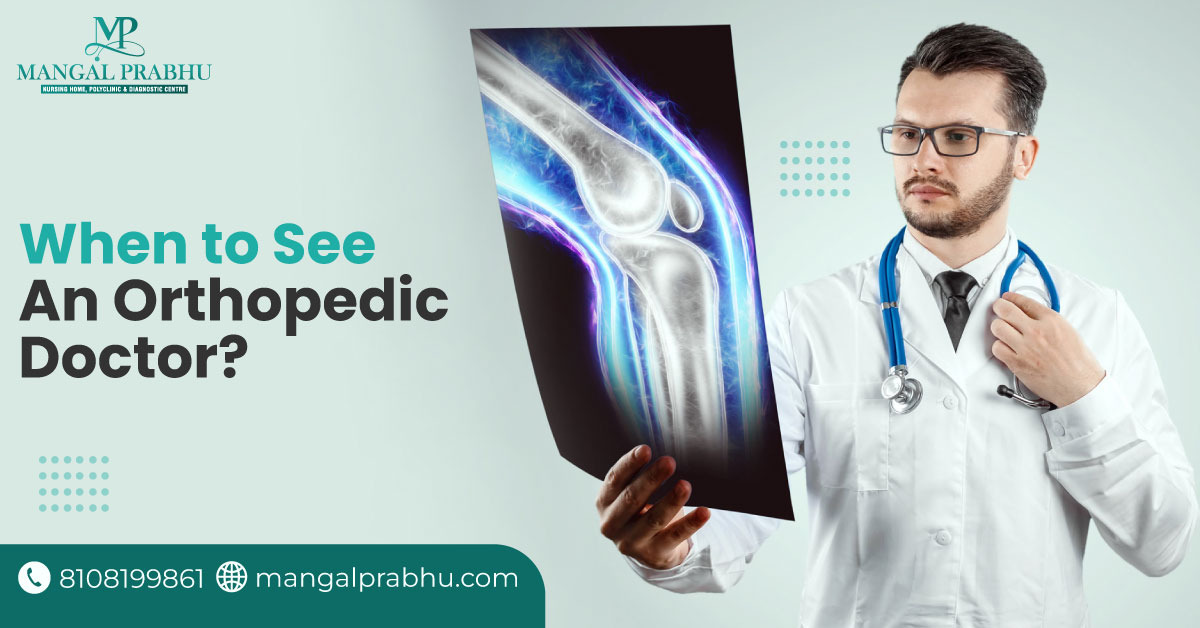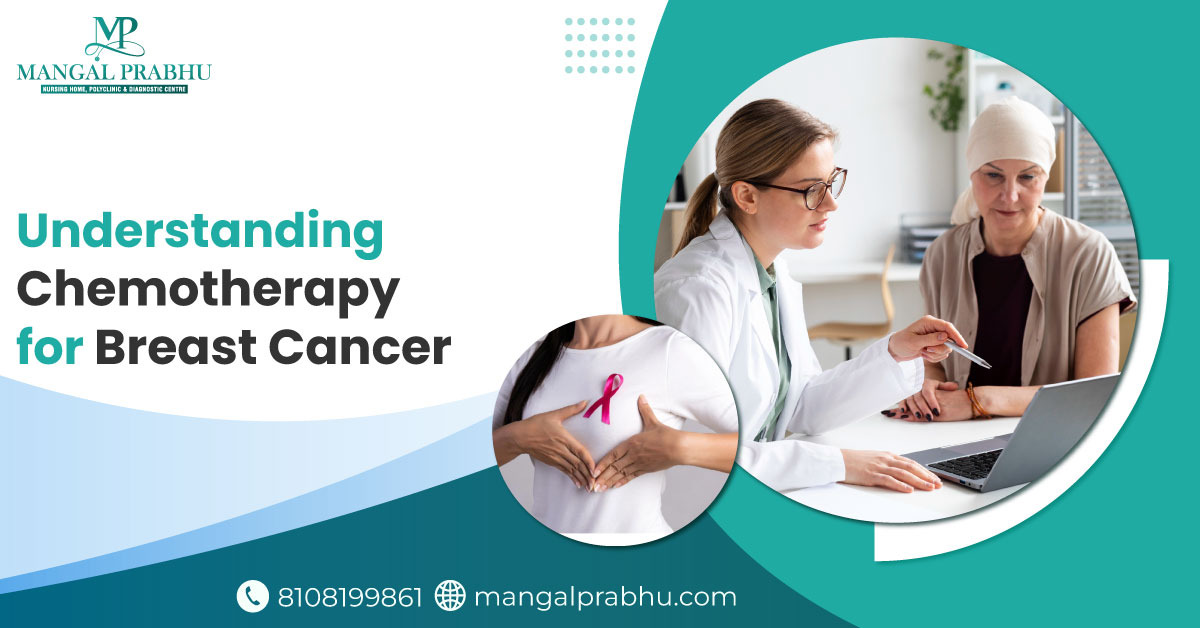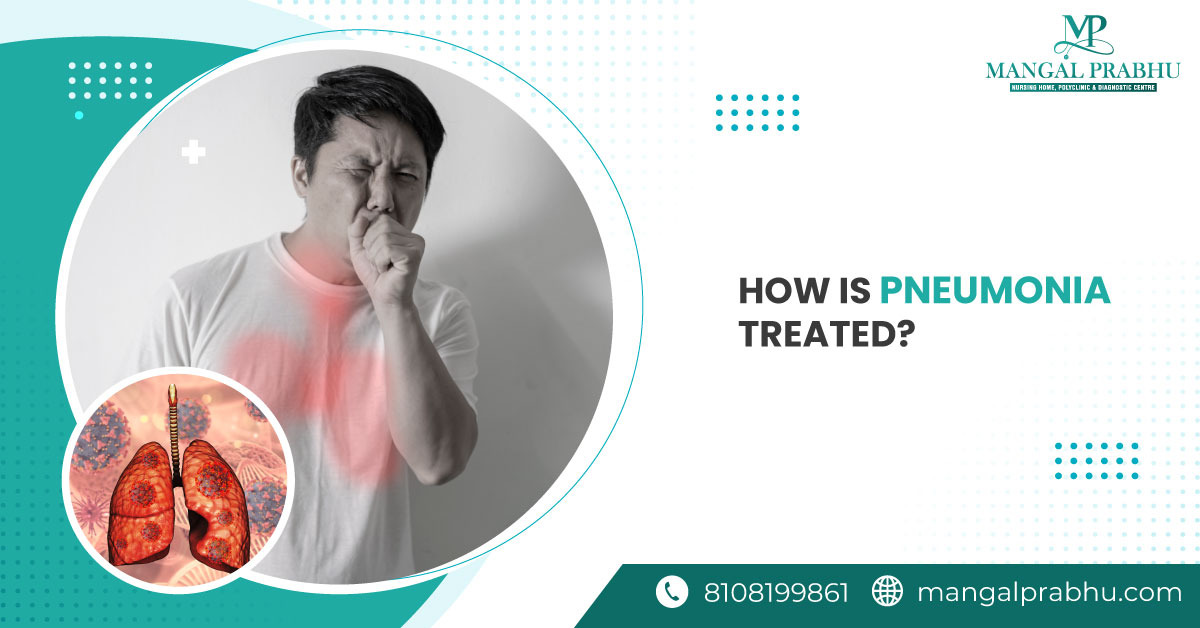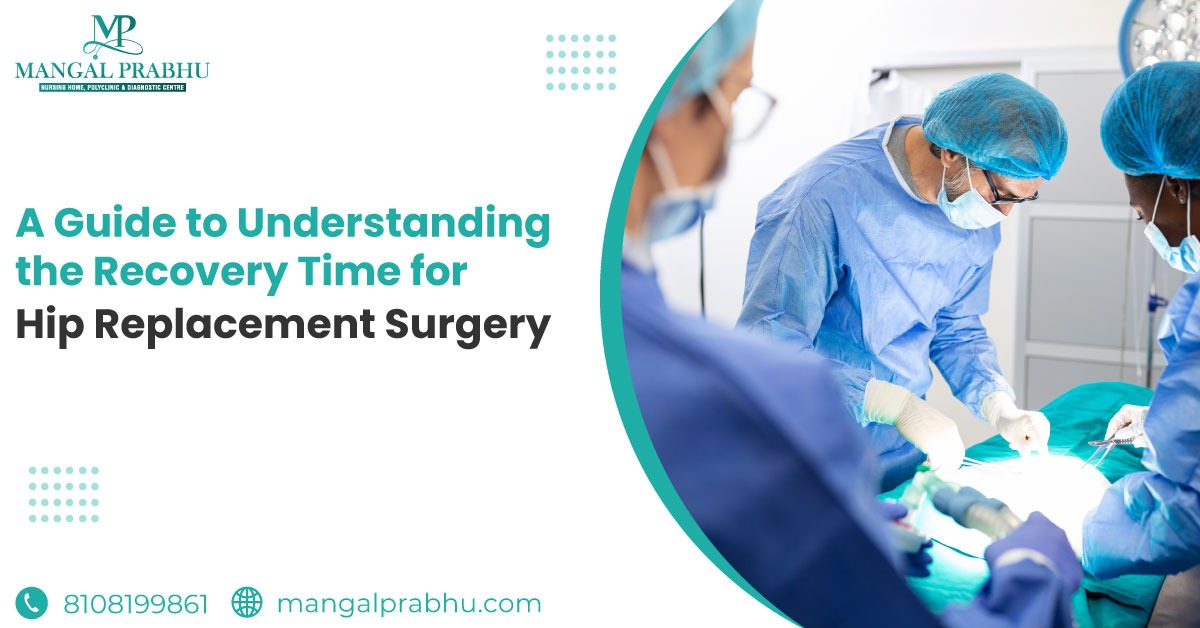
What Not to Do After ACL Surgery?
I. Introduction
The ACL is the knee’s guardian, ensuring stability and support. When this guardian gets injured, ACL surgery swoops in to save the day, restoring function and preventing long-term outcomes for the patient. ACL injury can also develop life-threatening and immobility issues, thus this surgical procedure helps in eliminating these risks. ACL surgery also helps in improving stability, reducing the risk of future knee injuries, reducing pain, and swelling, and preventing chronic issues. Thus an individual must consult with the best ACL reconstruction doctors in Navi Mumbai at Mangal Prabhu Hospital to avoid risk associated with ACL injury.
II. Physical Activities to Avoid
After ACL surgery an individual needs to stay very conscious about their knee as straining the joint during this period may hinder the healing process. Thus, an individual must hold off on running, jumping, and jogging for a certain period; there’ll be plenty of time for that triumphant return later. These high-impact activities can stress the healing ligament. Give your knee rest, advance treatment, and avoid high-contact sports until it gets back to its full strength. It would also be best to avoid heavy weightlifting and intense exercise that might transform your knee’s healing period into an injury period. However, you can also adopt lighter weights and controlled strength training to stay on the track.
III. Neglecting Rehabilitation Exercises
Besides rest and avoiding physical activities, an individual also needs to consider various things during their recovery period after ACL surgery. Just like medicines are important for quick recovery, rehabilitation programs also act as a knee training camp. Rehabilitation exercise is a power move, aimed at defeating muscle atrophy and joint instability. Each exercise helps in improving the knee’s efficiency and acts as a shield for various complications. Rehabilitation program as a personal trainer, customizing workouts for your knee’s unique needs and progress. Skipping these customized workouts may hinder progress, slow down, and setbacks become more likely. Neglecting rehab also weakens the knee’s defense against the forces of delayed recovery.
Also Read: How to Sleep After ACL Surgery?
IV. Ignoring Pain and Swelling
Pain and swelling are warning signs of complications associated with knees. They’re signals from your body, telling you things are in motion. Keep a vigilant eye, and if the pain and swelling stay persistent and intense, then let your healthcare provider know immediately so they can offer the right treatment and avoid the risk of complications.
V. Returning to Normal Activities Too Soon
Impatience during your recovery period may lead to severe complications. The knee needs proper rest and treatment for a certain period after ACL reconstruction surgery in Navi Mumbai. Returning to normal activities too soon increases the risk of further injuries, infection, delayed recovery, and other long-term issues. Be a wise patient – follow the timeline, resist the urge, and let your knee heal properly, so you can go back to your normal activities without any hassle.
VII. Conclusion
During your ACL surgery recovery, each step is crucial. Evade the high-impact exercise, adopt the rehab exercises, keep an eye on the pain and swelling, and, most importantly, let your knee take its time to heal so you can get a better recovery. Patience and commitment are essential, ensuring a triumphant return to normalcy. Always consult with the healthcare provider at Mangal Prabhu Hospital for personalized guidance throughout this epic recovery journey.

Symptoms of Measles in Adults
Measles, once considered a childhood illness, can affect adults, too, leading to complications if not promptly addressed. Understanding the symptoms is crucial for early detection and effective treatment. In this informative guide, you will explore the various symptoms of measles in adults, shedding light on the importance of awareness, prevention, and seeking timely medical assistance, possibly from a trusted general physician in Navi Mumbai.
Symptoms of Measles in Adults
Measles symptoms in adults can vary but often mirror those in children. Recognizing these signs is imperative for prompt intervention. Key symptoms include:
i) Fever:
A high fever is a common initial symptom, often rising rapidly after the onset of infection. Monitoring body temperature is crucial for timely intervention and fever management.
ii) Cough:
Measles typically triggers a persistent cough, which can be distressing for adults. Identifying the cough’s association with measles is vital for accurate diagnosis.
iii) Runny Nose:
Adults with measles may experience a runny or congested nose. This symptom can help differentiate measles from common colds or allergies.
iv) Rash:
The classic measles rash is a distinctive symptom. It usually begins a few days after the initial symptoms, starting as flat red spots and evolving into raised bumpy lesions. The rash often starts on the face and spreads downward, covering the entire body.
v) Photophobia:
Measles can cause increased sensitivity to light, known as photophobia. Adults with measles may find bright lights uncomfortable and prefer dimly lit environments.
Also Read: How is Pneumonia Treated?
vi) Conjunctivitis:
Inflammation of the eyes, or conjunctivitis, is another possible symptom. Adults may experience redness, irritation, and excessive tearing of the eyes.
vii) Sore Throat:
Measles can accompany a sore throat, making swallowing painful. This symptom adds to the overall discomfort experienced by adults with the infection.
Prevention of Measles
Prevention plays a pivotal role in mitigating the complications associated with measles. Two primary and highly effective strategies are integral to minimizing the risk of infection:
A) Vaccination:
Undoubtedly, vaccination stands as the most potent preventive measure against measles. The measles vaccine, often administered as part of the MMR (Measles, Mumps, Rubella) vaccine, has been instrumental in curbing the spread of the virus. Adults who lack a history of measles or haven’t received the MMR vaccine should seriously consider getting vaccinated, especially when residing in high-risk environments or planning international travel. Vaccination safeguards individuals and contributes to community immunity, protecting vulnerable populations who cannot receive the vaccine.
B) Avoiding Exposure:
Measles is notorious for its high contagion through respiratory droplets. To prevent exposure, individuals should exercise caution and adopt preventive practices. Avoiding close contact with individuals diagnosed with measles is imperative. Additionally, practicing good hygiene, such as frequent and thorough handwashing, further diminishes the risk of exposure. By adhering to these preventive measures, individuals can contribute to breaking the transmission chain of measles and protect themselves and their communities from potential outbreaks.
Conclusion
Measles in adults is a serious health concern, emphasizing the need for awareness and preventive measures. With the availability of measles treatment for adults in Navi Mumbai, including reputable healthcare facilities like Mangal Prabhu Hospital, individuals can access timely and effective medical care. Stay informed, prioritize vaccination, and seek prompt medical attention if symptoms arise to ensure the well-being of yourself and those around you.

When to See an Orthopedic Doctor?
What is an Orthopedic Doctor?
Orthopedic health is pivotal in maintaining our overall well-being, ensuring that our bones, joints, and muscles function seamlessly. However, when musculoskeletal issues arise, seeking the expertise of an Orthopedic Doctor in Navi Mumbai becomes imperative.
Orthopedic doctors specialize in diagnosing, treating, and preventing conditions related to the musculoskeletal system. This intricate system comprises bones, joints, muscles, ligaments, and tendons, and any disruptions can lead to discomfort, pain, or restricted mobility.
Common Conditions Treated by Orthopedic Doctors
Orthopedic doctors are trained to address a wide range of musculoskeletal conditions, including:
1) Fractures and Dislocations
Prompt attention to fractures and dislocations is crucial for proper healing and preventing long-term complications.
2) Arthritis
Orthopedic doctors manage various forms of arthritis, such as osteoarthritis and rheumatoid arthritis, providing relief and enhancing joint function.
3) Sports Injuries
Athletes often consult orthopedic doctors to treat sports-related injuries like sprains, strains, and torn ligaments.
4) Back and Neck Pain
Conditions affecting the spine, such as herniated discs or spinal stenosis, are within the purview of orthopedic expertise.
5) Joint Replacement Surgery
Orthopedic surgeons perform joint replacement surgeries, such as knee or hip replacements, to alleviate pain and restore function.
Also Read: Is Orthopedic Surgery Worth it?
When to See an Orthopedic Doctor?
Knowing when to seek the expertise of an orthopedic doctor is crucial for timely intervention and effective treatment. Consultation is recommended in the following scenarios:
a) Persistent Pain or Discomfort
If you experience persistent pain or discomfort in your joints, bones, or muscles, it’s advisable to consult an orthopedic doctor. Ignoring such symptoms may lead to the progression of underlying conditions.
b) Limited Range of Motion
Difficulty moving a joint or experiencing a limited range of motion warrants orthopedic evaluation. It may indicate conditions such as arthritis or ligament injuries.
c) Injury or Trauma
In cases of injuries or trauma to the musculoskeletal system, seeking immediate orthopedic attention is vital. Fractures, dislocations, or severe sprains require professional evaluation and treatment.
d) Joint Deformities
Noticeable joint deformities or abnormalities should not be ignored. Orthopedic doctors can assess and provide appropriate interventions to address such issues.
Diagnostic Tests and Treatments for Orthopedic Conditions
Orthopedic doctors employ various diagnostic tests, including X-rays, MRI scans, and blood tests, to accurately identify musculoskeletal conditions. Treatment modalities range from non-invasive approaches like physical therapy and medication to surgical interventions when necessary.
Tips for Choosing the Right Orthopedic Doctor
Selecting the right orthopedic doctor is crucial for receiving optimal care. Consider the following tips:
i) Credentials and Expertise
Verify the doctor’s credentials, certifications, and expertise in treating specific orthopedic conditions.
ii) Hospital Affiliation
Ensure the orthopedic doctor is affiliated with a reputable Orthopedic Hospital in Navi Mumbai.
iii) Patient Reviews
Read patient reviews and testimonials to gauge the doctor’s reputation and satisfaction.
Conclusion
In orthopedic health, timely intervention can make a significant difference in outcomes. Recognizing the signs that warrant a visit to an orthopedic doctor and choosing the right professional is paramount for maintaining musculoskeletal well-being. Mangal Prabhu Hospital stands as a beacon of orthopedic care in Navi Mumbai, offering comprehensive solutions through its team of dedicated and experienced orthopedic doctors. Your journey to musculoskeletal health begins with the right orthopedic guidance, ensuring a life of mobility and vitality.

Understanding Chemotherapy for Breast Cancer
When it comes to combating breast cancer, a multidimensional approach is often required. Chemotherapy Treatment in Navi Mumbai is pivotal in eradicating cancer cells throughout the body. Breast cancer is a formidable adversary, and in the arsenal of treatments available, chemotherapy stands as a powerful weapon against its progression. In this comprehensive guide, you can learn more about chemotherapy for breast cancer, exploring its mechanisms, risks, benefits, and crucial role in the overall treatment landscape.
What is Chemotherapy?
Chemotherapy is a medical treatment that utilizes drugs to target and destroy rapidly dividing cells, such as cancer cells. Unlike localized treatments such as surgery or radiation therapy, chemotherapy circulates throughout the bloodstream, reaching cancer cells that may have spread to other body parts.
How Does Chemotherapy Work for Breast Cancer?
Chemotherapy is a dynamic player in the breast cancer treatment arena, strategically deployed at different phases of the patient’s journey. In the pre-surgical phase, known as neoadjuvant chemotherapy, it shrinks tumors, facilitating more effective surgical removal.
Post-surgery, adjuvant chemotherapy takes the stage, aiming to eradicate any residual cancer cells, minimizing the risk of recurrence. The drugs utilized in chemotherapy exert their impact by disrupting the cell division process, impeding the growth and spread of cancer cells.
This dual approach, targeting both pre- and post-operative stages, showcases the versatility and effectiveness of chemotherapy in comprehensively managing breast cancer.
What Are the Risks and Side Effects of Chemotherapy?
While chemotherapy is a potent weapon, it is not without its challenges. Common side effects include fatigue, nausea, hair loss, and a heightened infection susceptibility. It is essential to acknowledge these potential side effects while recognizing that advancements in medical science continuously strive to minimize the impact on a patient’s quality of life.
Also Read: How Chemotherapy Is Done?
What Are the Benefits of Chemotherapy for Breast Cancer?
The benefits of chemotherapy in treating breast cancer are multifaceted.
1) Tumor Size Reduction
Chemotherapy effectively targets and reduces the size of breast tumors, facilitating a more manageable surgical intervention.
2) Risk Reduction for Cancer Recurrence
By eradicating cancer cells that may remain after surgery, chemotherapy significantly lowers the risk of cancer recurrence.
3) Enhanced Surgical Success
Administering chemotherapy post-surgery ensures the elimination of any residual cancer cells, enhancing the success of surgical procedures.
4) Holistic Treatment Approach
Integrating chemotherapy into a comprehensive treatment plan addresses cancer from multiple angles, leading to a more thorough and effective therapeutic strategy.
5) Long-Term Survival Rates
The multifaceted benefits of chemotherapy contribute to improved long-term survival rates, offering individuals battling breast cancer a more favorable prognosis.
6) Systemic Cancer Cell Targeting
Chemotherapy’s systemic nature allows it to target cancer cells throughout the body, addressing potential metastases and minimizing the risk of distant recurrence.
Conclusion
In breast cancer treatment, chemotherapy plays a dynamic and indispensable role. Its ability to target cancer cells systemically makes it a crucial component of a comprehensive treatment strategy. For individuals confronting breast cancer, collaboration with a specialized medical team, including a Breast Cancer Specialist in Navi Mumbai, is essential. Mangal Prabhu Hospital is a beacon of healthcare excellence, providing state-of-the-art facilities and a dedicated team of experts to guide patients through their breast cancer journey.

What Can Cause Miscarriage in Early Pregnancy?
Definition of Miscarriage:
It refers to the loss of a pregnancy before the 20th week. It can be a challenging and emotionally taxing experience for couples hoping to start or expand their families. Seeking support from a specialized Pregnancy Care Hospital in Navi Mumbai, such as Mangal Prabhu Hospital, becomes crucial during such delicate times. The compassionate care and guidance provided by experienced professionals in these dedicated healthcare facilities can aid couples in navigating the emotional and physical aspects of miscarriage.
What Causes Miscarriage in Early Pregnancy
A) Genetic Abnormalities:
The majority of early pregnancy miscarriages are attributed to genetic abnormalities in the developing embryo or fetus. These abnormalities disrupt the normal progression of pregnancy, hindering its viability.
B) Hormonal Imbalances:
Maintaining a healthy pregnancy relies on intricate hormonal balance. Disruptions in these hormonal levels can impede the normal development of the embryo, increasing the risk of miscarriage.
C) Infections:
Certain infections, whether bacterial or viral, directly threaten the developing fetus. It can compromise fetal health and contribute to the occurrence of miscarriage.
D) Structural Abnormalities:
Issues within the uterus or cervix’s structure can disrupt the embryo’s proper development. Structural abnormalities create challenges for the embryo to implant and thrive, potentially leading to miscarriage.
Also Read: A Guide To Having A Healthy Pregnancy: Essential Antenatal Advice For Mothers
Risk Factors
- Age: Advanced maternal age, especially over 35, increases the risk of miscarriage. Similarly, very young maternal age can also be a factor.
- Health Conditions: Pre-existing health conditions like diabetes, autoimmune disorders, or thyroid problems may elevate the risk.
- Use of Drugs or Alcohol: Substance abuse, including the use of tobacco, alcohol, or illicit drugs, can significantly increase the likelihood of miscarriage.
- Exposure to Certain Environmental Factors: Prolonged exposure to environmental hazards, such as radiation or toxic chemicals, may contribute to miscarriage.
Signs and Symptoms
1) Vaginal Bleeding:
One of the most common signs of a miscarriage is vaginal bleeding. While not all bleeding leads to a miscarriage, it is a concerning symptom that requires immediate medical attention.
2) Abdominal Pain:
Persistent abdominal pain, especially if accompanied by cramping, may indicate a potential miscarriage.
3) Back Pain:
Back pain, particularly in the lower back, can be a symptom of miscarriage. It is essential to consult with an obstetrician in Navi Mumbai, such as those at Mangal Prabhu Hospital, if experiencing such symptoms.
Prevention
i) Healthy Habits:
Adopting a healthy lifestyle, including a balanced diet, regular exercise, and avoiding harmful substances, can contribute to a healthier pregnancy.
ii) Regular Prenatal Care:
Early and consistent prenatal care is crucial for monitoring the health of both the mother and the developing fetus. Visiting a pregnancy care hospital, like Mangal Prabhu Hospital, ensures proper guidance and monitoring.
Conclusion
While not all miscarriages can be prevented, understanding the causes, risk factors, and signs can empower expectant parents to make informed decisions and seek timely medical attention. Consulting with a knowledgeable obstetrician in Navi Mumbai and prioritizing regular prenatal care are essential steps toward promoting a healthy and successful pregnancy journey. Miscarriage is a complex and emotionally sensitive topic, and support from healthcare professionals and loved ones plays a pivotal role in navigating through such challenging times.

How is Pneumonia Treated?
Pneumonia is the infection and inflammation of the lungs that can cause fever, cough, and mucus that could be yellow or bloody. Pneumonia can be caused by a viral or bacterial infection and can affect one or both lungs. It’s important to see a general physician in Navi Mumbai if you have trouble breathing and excess cough with fever. Pneumonia can spread through contact with the infected person or inhaling the infected air.
Symptoms of Pneumonia
Symptoms of pneumonia may vary from person to person. It can be different for adults and kids. The symptoms can appear suddenly or might develop gradually and worsen over time. Here’s what you might experience if you have contracted pneumonia.
- High fever
- Rapid and trouble breathing
- Chest pain from constant coughing
- Loss of appetite
- Shortness of breath
- A blue tint on lips and skin
- Extreme fatigue
- Confusion
Viral pneumonia can produce other symptoms, including dry cough and weakness. The symptoms can be different in kids. They might have trouble and noisy breathing with chills and fever.
Treatment of Pneumonia
For diagnosis, your doctor may conduct a physical exam where they check your breathing. They will conduct additional tests, including X-rays and blood tests to confirm the diagnosis. They will check how well your lungs are functioning and the amount of fluid inside each lung. Here’s how it’s treated.
- Antibiotics: Pneumonia can be caused by viral or bacterial infection. The latter produces more complicated symptoms and is more difficult to treat than a viral infection, which may sometimes resolve on its own. If it’s a bacterial infection, your healthcare provider may prescribe you antibiotics.
- Over-the-counter medications: You can get relief from the symptoms, such as high fever and constant coughing from over-the-counter medication.
- Bed Rest: Your doctor will advise you to take ample rest to keep the symptoms at bay. You must use a humidifier and drink enough fluids to prevent dehydration.
Also Read: Signs And Symptoms Of Asthma
How to Prevent Pneumonia?
Certain prevention tips can help protect you from catching pneumonia in the first place. Here’s what can help you prevent it.
1) Vaccines
Getting vaccinated for pneumococcal bacteria can help keep you from pneumonia, although vaccination alone doesn’t guarantee protection from pneumonia caused by different viruses and bacteria. Vaccination does help prevent the condition from getting worse, though.
2) Good Hygiene Practices
A few healthy habits and some changes in your lifestyle can help reduce your risk of catching pneumonia. Here’s what can help.
- Quit smoking
- Avoid touching your face with your hands, especially without sanitizing. Wash your hands before eating and drinking
- Avoid physical contact with people with severe cough, fever, and other symptoms of pneumonia.
- Eat a balanced diet with green leafy vegetables, fruits, and other healthy foods.
- Exercise regularly and get ample rest
- Get immediate treatment for any infection, as that increases the risk of contracting pneumonia
- Quit alcohol
Conclusion
Pneumonia can cause symptoms that are often confused with a regular cold and flu. However, if you notice anything unusual, such as cough and bloody mucus, get immediate pneumonia treatment in Navi Mumbai.

What Does a Urologist Do?
What is a Urologist?
A urologist is a healthcare professional specializing in the urinary tract system of men, women, and children. They also treat conditions related to reproductive health, such as the inability to keep and maintain an erection. Your reproductive organs and the urinary tract are located close to each other and are thus linked to the urinary system. Your urinary tract includes the parts that are responsible for eliminating waste from your body. This includes your kidneys, bladder, urethra, and ureters. Here’s all you should know about a urologist in Navi Mumbai and their role.
What Conditions Do Urologists Treat?
In the ancient period, patients were recommended a urine test to determine the cause of the issue in the urinary tract. The treatment was planned based on these reports. Today, urology has become a different field of medicine, which comprises several testing procedures and treatment options. The main role of a urologist is to identify and treat conditions related to your urinary tract, including common and rare diseases. Here’s what they treat:
- Urinary incontinence (inability to hold pee or sudden urge to urinate)
- Enlarged prostate
- UTIs (urinary tract infection)
- Cloudy urine, blood in the urine, and pain during urination
- Erectile dysfunction
- Kidney stones
- Cancer of the urinary tract system (bladder cancer, kidney cancer, or cancer in any part of your urinary system)
Urologists may or may not practice surgeries, but they are all trained to perform surgeries as and when needed. Their area of specialization includes kidney transplantation, male infertility, oncology, pediatric urology, and so on.
Also Read: How Stones Are Formed In Kidney?
Diagnosis and Treatment Methods
Depending on your symptoms, the urologist might conduct a physical examination or recommend other tests to diagnose the underlying cause of the disease. Here are a few common tests a urologist recommends.
A) Physical Examination:
The urologist performs a physical examination, which might vary for men and women. For men, the urologist conducts a rectal exam, and for women, a pelvic test.
B) Urinalysis:
The doctor will collect your urine or semen sample to diagnose infections and other medical illnesses.
C) Imaging Tests:
Based on your symptoms, the doctor will order CT scans, ultrasound, or an MRI for a proper diagnosis. Cystoscopy is another common procedure that’s used to diagnose the enlarged prostate and other urology issues.
Treatment depends on the diagnosis. The urologist can perform nephrectomy (kidney removal), prostate biopsy, vasectomy, and so on.
Benefits of Seeing a Urologist
Visiting a urology hospital in Navi Mumbai can help you treat infections and other urinary tract issues before it advances. Certain conditions like frequent UTIs need proper treatment. The same goes for chronic health issues, like cancer of the urinary tract system or enlarged prostate.
Your doctor may not necessarily recommend an invasive procedure unless it’s a serious issue. Medication, physical therapies, and lifestyle changes are often enough to treat general urology issues.
Conclusion
If you notice any unusual symptoms related to your urinary tract system, see a urologist immediately. They will recommend the tests to diagnose the problem and recommend a suitable treatment based on your age, health condition, and goals.

A Guide to Understanding the Recovery Time for Hip Replacement Surgery
Introduction
When it comes to recovery duration after hip replacement surgery, people are more likely to assume a more extended period than the actual recovery time. However, this guide has shed light on the recovery time and other aspects of hip replacement surgery so an individual can make a better decision before their hip surgery. Moreover, it would be best to consult with the best Hip Replacement Surgeon in Navi Mumbai from Mangal Prabhu Hospital to make a better decision regarding surgery.
Definition of Hip Replacement Surgery
Hip replacement surgery is a transformative solution for an individual suffering from the challenges of severe hip conditions. This surgical procedure helps in reducing pain and allows better flexibility, mobility, and functionality in daily work performance.
Benefits of Hip Replacement Surgery
- Patients often regain independence daily, as they can perform challenging tasks before the surgery.
- It removes the damaged part of the hip, which helps overcome chronic pain and improves quality of life.
- An individual can regain the functionality of their hip joint and can also improve mobility after the surgery. Thus, consulting with the best doctors at Mangal Prabhu Hospital for hip replacement surgery in Navi Mumbai would be the best to attain all the benefits.
Recovery Time for Hip Replacement
A. Immediate Recovery
This recovery period refers to the duration directly after the surgery when the patient is closely monitored in the hospital to avoid complications. The doctor may suggest pain management and mobility exercises during this period.
B. Short-Term Recovery
This period starts after discharge from the hospital and may last for up to six weeks. During this period, patients gradually regain mobility and begin physical therapy.
C. Long-Term Recovery
This period starts from the initial six weeks after surgery to several months or years. A patient continues therapies and other precautions to regain optimal joint function.
What to Expect During Recovery
a. Pain Management
Medications, both oral and sometimes intravenous, are prescribed to control pain levels. As healing progresses, the reliance on pain medications typically decreases.
b. Physical Therapy
Physical therapy helps in improving strength, flexibility, and joint function. Therapists guide patients through exercises that enhance mobility and stability, focusing on the hip and surrounding muscles.
c. Diet and Nutrition
A balanced diet rich in nutrients and an adequate protein intake supports muscle recovery, while vitamins and minerals contribute to overall health.
Tips for a Smooth Recovery
i. Follow the Directions of the Doctor and Physical Therapist
Adhering to the recommendations and instructions provided by the medical team is crucial. It includes taking medications as prescribed, attending physical therapy sessions, and following any activity restrictions.
ii. Listen to Your Body
It would be best to rest and perform activities according to an individual’s body needs, which helps reduce potential pain and discomfort.
iii. Maintain a Positive Mindset
Patience is vital, as improvements may be gradual. Staying optimistic and celebrating small milestones can help alleviate emotional challenges during recovery.
V. Conclusion
Hip replacement surgery offers significant benefits for individuals suffering from hip-related issues. However, it would be best to understand the recovery time and consult the best surgeon before surgery to get the best possible solution.

How To Relieve Hernia Pain?
What is a Hernia?
Hernia is a common abdominal issue that can obstruct the overall well-being of an individual. This issue can be caused due to an undesirable strain and weakness in the tissue or muscle. Hernia most commonly happens when fatty tissue in the abdominal area squeezes through a weak spot in a fascia or connective tissue. Hernia issues are harrowing and can get worse with time. Thus, it would be best for an individual to get proper Hernia Treatment in Navi Mumbai to live a healthy and peaceful life. Furthermore, Mangal Prabhu Hospital has world-class doctors who specialize in offering the best treatment plan for Hernia for the betterment of their patients.
Types of Hernia
- Inguinal Hernia: This Hernia most commonly occurs in men’s groin area. Inguinal Hernia contains the protrusion of a part of the intestine via a weak spot in the abdominal tissue.
- Femoral Hernia: Similar to inguinal hernias but occurs lower in the groin, near the upper thigh. It is more common in women.
- Umbilical Hernia: Develops near the navel or belly button and is often seen in infants. It occurs when the abdominal muscles do not close properly after birth.
- Incisional Hernia: Forms at the site of a previous abdominal surgery, where the abdominal muscles have weakened or separated.
Symptoms of Hernia
Hernias often present with the following symptoms:
- Visible Lump or Bulge
- Pain or Discomfort
- Aching or Burning Sensation
- Indigestion or Difficulty Swallowing
Also Read: CAN HERNIA BE TREATED WITHOUT SURGERY?
Causes of Hernia
The development of hernias is often attributed to a combination of muscle weakness and increased pressure on the affected area. Some common causes include:
- Age-Related Muscle Weakness: Muscles naturally weaken over time.
- Persistent Coughing or Sneezing: Increases abdominal pressure.
- Straining During Bowel Movements: Especially in cases of constipation.
- Heavy Lifting: Puts strain on abdominal muscles.
How to Relieve Hernia Pain
Surgery is one of the most effective treatments for Hernia. Thus, consulting with the best Hernia Surgeon in Navi Mumbai from Mangal Prabhu would be best. However, some of the common ways to relieve hernia pain are:
- Medication: It is best to ask your healthcare provider to suggest an over-the-counter painkiller for hernia pain.
- Wearing a Truss or Support Belt: Provides support to the affected area.
- Cold or Warm Compress: Applying to the Hernia may alleviate pain and reduce swelling.
- Avoiding Heavy Lifting: Minimize activities that strain the affected area.
- Maintaining a Healthy Weight: Excess weight can worsen hernia symptoms.
- Dietary Changes: For hiatal hernias, smaller, more frequent meals and avoiding certain foods.
Prevention Tips
Taking proactive steps to prevent hernias or reduce the risk of recurrence includes:
- Maintaining a Healthy Weight: Through a balanced diet and regular exercise.
- Avoiding Straining During Bowel Movements: Ensuring an adequate fiber intake and staying hydrated.
- Lifting Properly: Using proper techniques, such as bending at the knees and keeping the back straight.
- Quitting Smoking: Smoking weakens tissues, increasing the risk of Hernia.
Conclusion
Hernia is a critical issue that requires proper medical attention and treatment. However, by following the preventive measures and taking the precautions mentioned, an individual can quickly get through hernia pain without hassle.

A Guide to Having a Healthy Pregnancy: Essential Antenatal Advice for Mothers
The two positive lines on the pregnancy test are one of the best feelings for parents. As exciting as this phase is, pregnancy can bring a unique set of challenges. With everyone giving you different advice, it’s difficult to know who to follow. It’s important to see your obstetrician in Navi Mumbai immediately if your pregnancy test is positive. They will prescribe folic supplements (if you aren’t already taking them) and nutrition tips to keep the mother and the baby healthy. In the meantime, let’s see how you can prepare yourself for pregnancy.
Preconception Health: What You Need to Know Before You Get Pregnant
If you are planning a pregnancy, your healthcare provider will discuss your medical condition, any complications in previous pregnancies, any medication you are currently taking, and your family history of medical issues to rule out the possibility of any complications in conceiving. You should start 400mg of folic supplements right away.
You also need to stop the consumption of alcohol, drugs, and smoking to prevent the risk of pre-term birth, stillbirth, or miscarriage. Starting a healthy lifestyle with a balanced diet and regular exercising is key to maintaining a healthy weight for pregnancy.
Nutrition During Pregnancy
The calorie count for the day increases as your pregnancy progresses. Ideally, your body needs 300 extra calories daily to meet your baby’s growth requirement. You should get it from protein, vegetables, fruits, and other healthy foods. Cut down on sweets, junk food, and other unhealthy foods that offer little to no nutrition. Here’s what to include in your pregnancy diet:
- Green leafy vegetables and fruits
- Fat-free dairy items
- Foods rich in vitamins and omega-3 fatty acids, like fish
- Lamb, fish, beans, and other sources of protein
Also Read: What Is A High-risk Pregnancy?
Common Pregnancy Complications and How to Manage Them
Pregnancy complications can occur in any phase of your pregnancy. In the first trimester, there’s an increased risk of ectopic pregnancy or miscarriage due to genetic defects or a medical condition.
Later in your pregnancy, you should get screened for gestational diabetes and hypertension. Anemia is also a common problem in women during the second trimester. If you notice any unusual symptoms during pregnancy, reach out to your obstetrician immediately to prevent further complications.
Preparing for Labor and Delivery
A pregnancy care hospital in Navi Mumbai recommends you take antenatal classes to learn about labor and prepare your body for it as early as possible. Talk to your gynecologist about the exercises during pregnancy.
You will start with walking, swimming, and basic exercises in the first trimester. As your pregnancy progresses, your healthcare provider will recommend strength training and exercises that can help during labor.
Postpartum Care
The first few weeks after delivery are crucial for the mother’s health. With the responsibility of a newborn, the mothers sometimes forget they have delivered a baby. Your body needs rest and time to heal. Eat well and avoid heavy lifting, climbing stairs often, etc. Practice mild exercises, as recommended by your obstetrician, and keep the stressors away.
